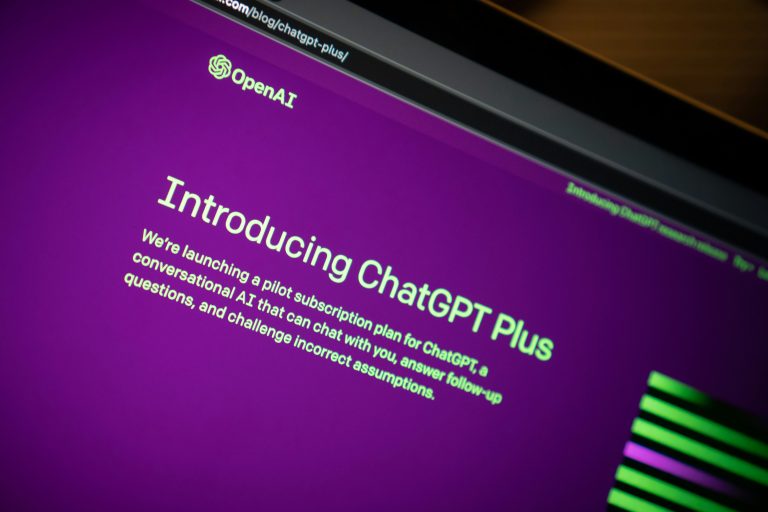The AI community is buzzing today after OpenAI’s Thursday announcement of its latest search feature, integrated directly into the ChatGPT platform. Initially available only to paid users, the tool allows subscribers to conduct real-time web searches within the familiar ChatGPT interface. OpenAI shared the news with its 3.7 million followers on X (formerly Twitter), amassing nearly 2 million views in mere hours and sparking discussions about what this move means for the future of internet search.
How OpenAI’s New ChatGPT Search Works
According to OpenAI’s blog, the search function integrates real-time web results directly into ChatGPT’s conversational responses, providing citations, links, and images to enhance accuracy and context. ChatGPT’s AI will automatically decide when to search the web based on the query, though users can also initiate searches manually by clicking the “globe” icon.
Initially, the feature will be accessible to ChatGPT Plus and Team users, with broader rollout planned over the coming months. The tool pulls from a wide variety of sources — from blogs and stock tickers to licensed content from media partnerships — aiming to provide comprehensive and reliable information.
Key Media Partnerships Fuel Enhanced Search Accuracy
OpenAI’s search is backed by collaborations with top media outlets, including Associated Press, Reuters, Time, and The Atlantic. “We collaborated extensively with the news industry and carefully listened to feedback from our global publisher partners,” OpenAI explained in a blog post. This support allows ChatGPT to retrieve information from reliable sources, giving users confidence in the results.
This strategic alignment with trusted media players also helps combat “hallucinations” — instances where AI might fabricate information. By drawing on licensed sources, OpenAI aims to make generative AI search more transparent and factual, a significant step for enhancing user trust in AI-driven responses.
AI Experts Praise OpenAI’s Entry into the Search Arena
Notable voices in the AI field shared positive feedback on the release. Conor Grennan, chief AI architect at NYU Stern and CEO of AI consultancy AI Mindset, noted that OpenAI’s approach signifies a shift in how people may come to view internet search. “The new standard is to search multiple websites and give you an answer in natural language. ChatGPT search is blazing fast and borrows from the Perplexity-style interface, which is great,” Grennan wrote.
Grennan highlighted the tool’s transparency: “If you ask it a normal ChatGPT query and press ‘search,’ it will give you the answer but will cite its sources. It’s as if you’re reading ChatGPT’s mind.” However, he noted that early issues with outdated information may need further refinement as OpenAI continues to fine-tune its search capabilities.
Sabrina Ramonov, an AI expert who previously founded and sold a speech recognition company, voiced her support while also pointing out some of ChatGPT search’s limitations compared to Perplexity. “I love the sources cited, but I still prefer Perplexity’s ability to focus on particular sources, like social platforms or video content,” Ramonov shared. Other AI influencers noted the advantage of ChatGPT search’s ad-free results, which contrasts with Google’s ad-driven model.
Why OpenAI is Entering the Search Market, According to AI Experts
Grennan and Ramonov shared differing views on what might have motivated OpenAI to launch a search tool. For Ramonov, OpenAI’s emphasis on source transparency directly addresses key challenges facing large language models (LLMs) like hallucinations and lack of transparency. “LLM hallucinations and ‘black-box’ lack of transparency are massive concerns. By citing sources, it’s much easier for users to dive deeper and confirm information,” she wrote.
Grennan, however, sees this as a strategic pivot aimed at expanding OpenAI’s influence. “The vast percentage of the population only use LLMs like ChatGPT occasionally…but everyone — billions of people — are using internet search tools. OpenAI seems to realize that if the population isn’t coming to them, they will go to where the population is,” he observed, hinting at OpenAI’s potential to become a major competitor in the search space.
Can ChatGPT Search Compete with Google?
Ramonov shared that her reliance on Google has waned, with generative AI tools like ChatGPT and Perplexity fulfilling her search needs. “My use of Google search has steadily declined…But I think Google search will evolve to include more interactive, generative AI features,” she noted, emphasizing that Google will adapt to remain relevant.
Grennan, while enthusiastic about ChatGPT’s progress, believes Google will need to overhaul its model to keep pace. “ChatGPT Search will not be a Google search killer…Traditional Google search will be killed off by Google — they have to compete with ChatGPT search and Perplexity. They’ve seen the writing on the wall,” Grennan concluded.
Google’s Gemini AI Adds Perspective on OpenAI Search
AI experts aren’t the only ones weighing in; Google’s own Gemini AI shared its take on the new tool. When asked to highlight the pros and cons, Gemini acknowledged OpenAI’s ad-free interface, credibility in citations, and interactive design as strengths. However, Gemini noted that as a developing tool, OpenAI’s search may lack the depth of Google’s extensive database and requires a paid subscription, potentially limiting its user base.
Asked whether it viewed ChatGPT search as a “Google killer,” Gemini remained measured: “Google Search is a well-established product with a massive user base…However, ChatGPT Search offers a unique user experience that could appeal to some users.” Gemini’s response suggests Google is aware of the competition but confident in its foundation.
What ChatGPT Search Means for the Future of AI-Powered Search
The AI-powered search landscape is rapidly evolving, with ChatGPT and competitors like Perplexity offering users a fresh, ad-free approach to finding information online. Whether or not OpenAI’s search tool disrupts Google’s dominance, it signals a major shift in how people interact with AI and find information.
With an increasing number of options in the generative AI search market, consumers are the ultimate winners, gaining access to faster, more transparent, and flexible ways to explore the internet’s vast information network.


